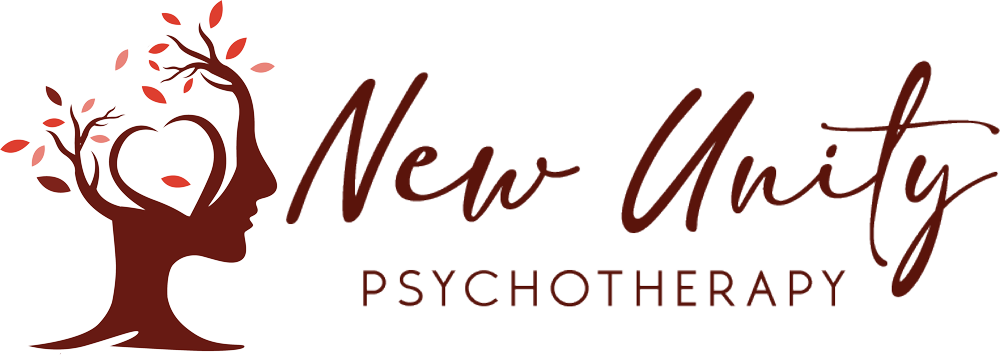Individual Relationship Counseling at New Unity Psychotherapy
- Difficulty communicating effectively with others.
- Challenges in maintaining long-term relationships.
- Repeated patterns of failed or unhealthy relationships.
- Lack of awareness of how one’s behavior impacts others.
- Feelings of emotional invalidation or disconnection in relationships.
- Struggles to form new relationships due to past relational trauma or fear of rejection.
- Improved Communication: We’ll help you learn how to express your needs and desires clearly and respectfully while also developing active listening skills to foster mutual understanding.
- Self-Awareness: Together, we’ll explore how your behaviors, words, and tone affect your relationships, and how your emotional responses impact your interactions.
- Empathy: You’ll develop a greater ability to understand and validate the emotions of others, leading to stronger connections and deeper bonds.
- Emotional Regulation: We’ll teach you how to manage your emotional responses to prevent conflicts and maintain a healthy balance in your relationships.
- Understanding Attachment Styles: We’ll explore your personal attachment style and how your early-life experiences have shaped your approach to relationships, which will help you break unhealthy patterns.
- Constant conflict and arguments, often over minor issues.
- Feeling misunderstood or invalidated in your relationships.
- A tendency to push people away without knowing why.
- Feeling emotionally drained or unfulfilled.
- Repeating the same mistakes in multiple relationships without clear insight into the root cause.
Your sessions will help you uncover the reasons behind these behaviors. We often trace these patterns back to early relational experiences or attachment styles formed during childhood. Understanding how early relationships with caregivers affect your relationship patterns as an adult can provide powerful insights into your current relational dynamics.
- Open, respectful communication where both individuals feel heard and valued.
- Emotional validation, where each person’s feelings are acknowledged and treated with care.
- A strong sense of self-awareness and empathy that leads to deeper emotional connections.
- Constructive conflict resolution, where disagreements are addressed calmly and productively.
- A balanced dynamic where both people feel supported and valued.
As you work along in therapy, you’ll learn how to bring more self-awareness, empathy, and emotional intelligence into your relationships. You’ll also discover how to foster healthier, more fulfilling connections with others.
Through this exploration, we’ll trace how your early experiences with caregivers or past relationships have influenced how you approach connection today. We’ll also look at any relational trauma that may have impacted your ability to form healthy bonds.
Once we identify the root causes, we’ll work together to develop strategies for addressing and reshaping these patterns. This might involve improving your communication skills, building emotional awareness, and learning how to manage attachment-related anxieties.
By learning to express your emotional needs, you’ll become more attuned to the needs of others and begin to experience healthier, more satisfying relationships. Emotional validation is essential for building strong bonds, and you’ll find that this skill enhances all areas of your life.
By learning how to extend love and compassion to yourself, you’ll be better equipped to receive love and validation from others. This self-awareness and inner strength will ultimately lead to healthier, more balanced relationships
Reach out to me, Melissa N. Douglas, LCSW, at New Unity Psychotherapy by calling (914) 844-6682 to schedule your free 30-minute consultation.
your healing journey today.
